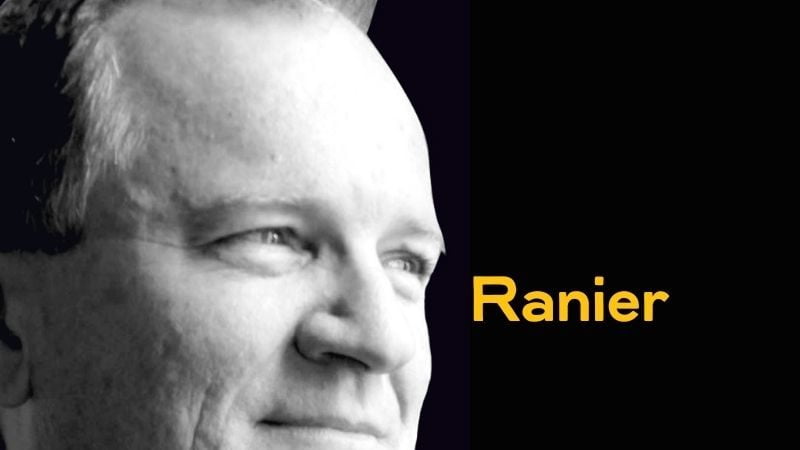Elsewhere, he’d be a public broadcaster’s worst nightmare. Here, however, PBS pays him to present a current affairs programme called Realtà. It’s almost poetic.
Elsewhere, Xtra would be the name of a film where the lonely lady of the house is consoled by a steady stream of obliging handymen. Here, it’s the name of a TVM current affairs programme and refers, presumably, to the length of time it takes the host to complete a coherent question.
Elsewhere, L-Erbgħa Fost il-Ġimgħa is the sort of folksy title you’d associate with a programme that tours the country’s regions, sampling the cuisine and inviting flirtatious grandmothers to sing in their dialect. Here, it’s a prime time marathon that offers two hours of earnest talk about, say, paedophilia.
The flagship current affairs programme of BBC 1 is called Question Time; BBC 2’s flagship is called Newsnight; BBC Radio 4’s is called Today. Not to be outdone in plain speaking sobriety, the flagship programme of Das Erste, the German public broadcaster, is called Tagesthemen (issues of the day).
All these programmes do what it says on the tin. Today begins at 6am and sets the political agenda. Question Time has the general public ask politicians, business leaders and cultural figures what they think. Newsnight and Tagesthemen give depth and context to current issues. Each treats the audience as adult.
Here, however, the public broadcaster’s daily current affairs programme is called Popolin — “masses” or “common people”, although in spoken Maltese it connotes socially humble folk with a childlike fragility who need the care and attention of their leaders. Thoughtfully, the presenter frequently clarifies that the popolin are the viewers (and him, too, of course).
Why does our public broadcaster have programmes with names so different from the BBC or Das Erste? In part, it’s an institutional matter. The British and German flagships were founded decades ago. The name is now a brand. It needs no fancy twists. The programme exists apart from any individual and it endows the journalist who hosts it with prestige.
The Maltese programmes, however, are outsourced by TVM. Each programme purports to be a new invention, distinguishing itself from what went before. Hence the ubiquitous phrase, “programme with a difference”, whereas the BBC’s new generation hopes to be no different from the Dimblebys, Paxman and Humphrys. With us, the chase for distinction is reflected in the search for catchier names. There is no institutional brand.
There’s also the matter of who fronts the programmes. The BBC and Erste have professional political journalists at the peak of their career, conscious of having stepped into the shoes of great predecessors. Whatever it was that got our presenters their programmes, it wasn’t their journalism.
Real journalists see themselves as serving the public interest by pursuing transparency and accountability from the authorities. They pursue watchdog journalism. They may work in different countries but, language permitting, they’re familiar with the best work produced by their international peers. That’s the standard they aspire to and, therefore, the fundamental community they feel they professionally bound by.
It’s evident that most of our current affairs presenters see themselves differently — perhaps as social and cultural entrepreneurs — and so they understand what they’re doing differently. They speak and interview, for the large part, as though they think of their work as mediating between the powerful and the weak, sometimes to convey the puzzlement or ‘hurt’ of ‘the populace’, and at other times to help convey the paternalistic guidance of the powerful.
Critics are quick to say that the programmes are what they are because the presenters are willing to be propagandists for the ruling political party, or at least to avoid stories that could embarrass the government. This is to suggest an explicit conspiracy.
But there is a second propagandistic aspect, which is probably unnoticed even by its perpetrators. This is the idea, on which most current affairs programmes are based, as well as news bulletins: that the people which these programmes address are a ‘populace’, masses, a folk, and not a polity, a democratic assembly that is united only by virtue of the constitutional values.
To portray voters as a populace is to justify paternalism. To speak as though it goes without saying is to justify paternalism without argument, putting the onus on those who object to show why things should be different.
Most insidious of all is that you do not even have to quibble over terms. It’s enough to ask questions in the name of people who are “puzzled”, or “hurt”, who have “human stories” to tell, and pretty soon, it becomes a strain even to insist on the public interest as something that transcends private agendas.













Keep up the good work Ranier! Somebody has to!